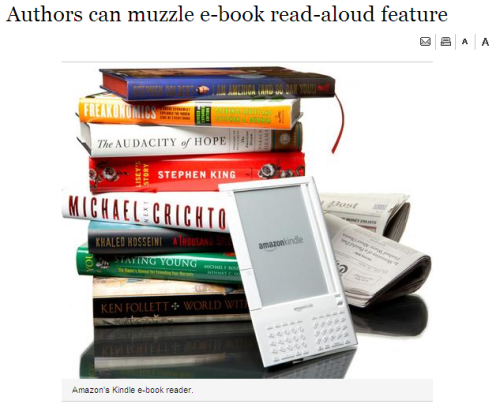OK, so I’m a day late with this news because I have just finished reading the hard copy version of yesterday’s Canberra Times newspaper, but I was really taken by this full page feature on Australian children’s author, Emily Rodda‘s visit to Canberra this week to address the launch of a special exhibition and project managed by the Lu Rees Archives of Australian Children’s Literature at the University of Canberra.

Emily Rodda believes it is "vitally important that children have a smorgasboard of the absolute best stories from every culture to choose from."
In April 2010, the Lu Rees Archives began a project to catalogue 462 Australian children’s books, DVDs, puzzles and games published in 32 languages. The Lu Rees Archives had to employ CAVAL, the professional cataloguing company to gain access to the language expertise required to catalogue these resources using specialist translators for languages such as Icelandic, Tetum from East Timor, and Zulu! A number of embassies also joined forces to sponsor the project. This represents the breadth of coverage across countries and languages that the works of many Australian children’s authors now have. The Lu Rees Archives now holds 659 items of Rodda’s work which makes it the largest collection in Australia.
The Lu Rees Archives has become one of the special libraries included on the itinerary of the Canberra Study Visit as part of the School of Information Studies‘ professional experience program, and in the past few years we have found the visit to Lu Rees Archives hosted by Emeritus Professor Belle Alderman is always a favourite of students, especially those students studying in the Bachelor of Information Studies, Master of Information Studies and Master of Education (Teacher Librarianship) who are working as children’s librarians and teacher librarians.

Belle is the Collections Development Manager at the Lu Rees Archives and has worked tirelessly in maintaining this unique collection of works and artefacts on Australian children's literature.
Belle has also hosted a number of CSU students as part of our SIS Professional Library Placement program. This is where our students are provided with the opportunity to apply their theoretical knowledge practically in an information-based workplace, with emphasis being placed on the acquisition of knowledge and the performance of professional activities. As a small special library, students can gain excellent individual attention and hands-on experience in information work, while contributing to special projects and being surrounded by some of Australia’s greatest literary treasures. All the new records for this recent Lu Rees project of translated works are available via Libraries Australia hosted by the National Library of Australia. This way, as Belle states: ‘The world then knows these books exist and are publicly available… ‘Most importantly, such translations demonstrate the importance of children’s stories and their ability to link people of all cultures through common stories.’‘
In this interview Emily Rodda also makes a distinction between ‘books’ and ‘stories’, particularly now as our world becomes more and more digitally-enhanced. She believes it is important to continue supporting an appreciation of literature and reading of stories, no matter the format (whether as an ebook or printed book), and compares this to listening/viewing ‘story’ portrayed via film or video/online games:
”It’s very, very important we go on reading because there is a logic and a rationality to even the most fantastic story, and a complexity and an understanding of how people work things out, which doesn’t appear in film because it’s all visual.
Things might happen in a logical order in a film but you don’t get that rational explanation of why things happen.
If we want our future citizens to be able to reason and to see propaganda for what it is, for example, or work their way through people trying to persuade them to do something by appealing to their emotions, it’s important, in their childhood, that they’ve learnt about rational argument and I think that’s one thing books do.”
I think this final statement sums up the power of literary learning and why it must remain fundamental to a 21st century education. School libraries are central to building a reading and literary learning culture within a school. As part of the NSWDET 21C school library futures project Envisioning School Libraries in 2009, Ross Todd and I devised a set of eight (8) principles underpinning 21C school library design as an instructional zone within and beyond the school emerged, one of which was:
A centre that supports literary learning, where students become immersed in imaginary worlds, explore personal reading interests, develop sustained voluntary reading practices, develops reading for meaning and independence as critically-capable readers. (Hay & Todd, 2010, p. 16)
I think this reflects what Emily Rodda has emphasised in this Canberra Times feature.
A detailed presentation on these principles of 21C school library design can be viewed in my presentation at the Cairns Diocese Curriculum Conference:













